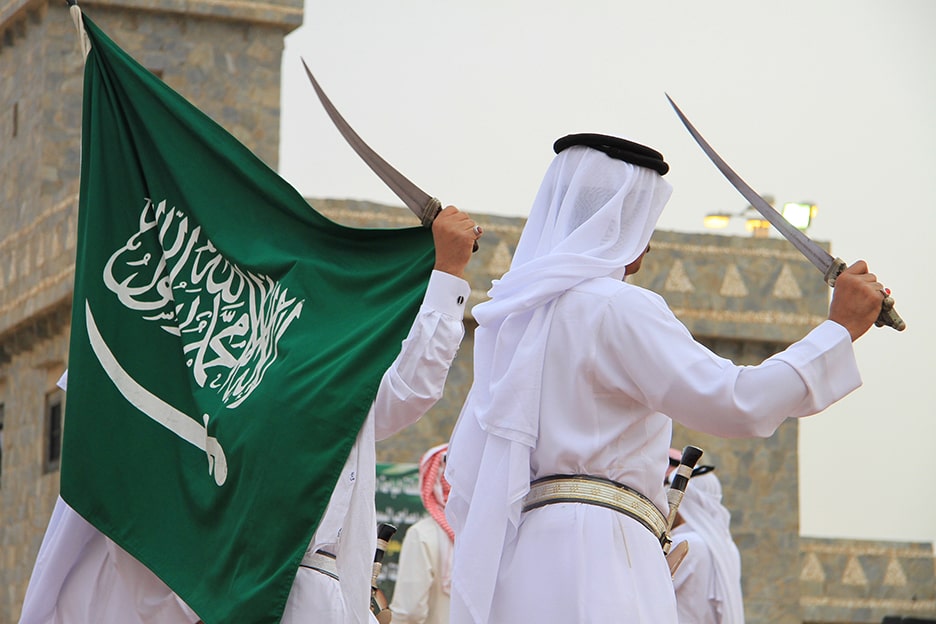It is a time of massive change for Saudi Arabia, a nation very proudly steeped in its traditions and history. This change is perhaps best characterized by the broadening cultural exchange that is largely influenced by expatriates who are now taking center stage in shaping the emerging identity of the Kingdom. While the country is becoming increasingly open to global influences, the incoming diverse cultures have begun to enrich the social and cultural fabric of the nation in quite remarkable ways.
A Melting Pot of Cultures and Traditions
Saudi Arabia’s cultural scene is now seeing a melting pot of new ideas and old traditions. This includes an expatriate component which brings people from all corners of the world, carrying with them new experiences and viewpoints laced with diverse customs that may fill the Kingdom’s society with new vigor and innovation.
1. Culinary Evolution
The most obvious change is on dinner plates. International restaurants and cafés have added variety to the available dining options within Saudi Arabia. In Riyadh, Jeddah, and Dhahran, for example, there is a deluge of international cuisine—starting from Italian and French to Japanese and Mexican. It means that variety is not only expanding Saudi tastes but building an environment wherein international and local traditions are alive together and complementing each other.
For instance, sushi bars, Italian pizzerias, and French patisseries have introduced new eating-out experiences to the locals. Increasingly, Saudi restaurants incorporate global ingredients and methods for preparing dishes into their traditional food items, hence creating fusion cuisine in an innovation-rich manner. This gastronomic diversity mirrors a wider trend of cultural assimilation, where the traditional Saudi flavors meet international influences in concocting a unique and dynamic food culture.
2. Enriched Arts and Entertainment
Final heavy impacts that the expatriates are making upon Saudi Arabia involve the arts and entertainment sector. The artists, musicians, and performers of different cultural backgrounds help enrich the cultural scene. Their contribution can be reflected in various cultural events, including art exhibitions, music festivals, and theatre performances that seem to grow in number and diversity.
Quite often, one witnesses a confluence of international and local art in these initiatives. For example, the galleries may occasionally hold exhibitions of Saudi art in the traditional form mixed with the most modern forms from around the world. The music festivals may include concerts where the local rhythms are combined and played in global genres, thereby offering a distinct cultural experience to the audience. All these contributions go a long way in providing a more inclusive and varied cultural environment that enables better appreciation and understanding of the various traditions of art.
3. Promoting Cultural Exchange
Expatriates serve as cultural ambassadors who bridge the gap between Saudi Arabia and other countries. Their interaction with local communities helps enable better understanding of different cultures, breaks stereotypes, and enhances mutual respect. By daily interactions, expatriates promote intercultural dialogue, very fundamental in building strong and diverse communities.
In addition, the global travels and cultural trends that expatriates possess act to the best interest of Saudi Arabia’s tourism sector. The expatriates project the historic sites and natural landscapes, as well as the cultural heritage of the Kingdom. They make it attractive for international tourists and place Saudi Arabia on the world’s tourism map. The experience of various parts of the world makes them better suited for contributing to the development of tourism strategies that would capture more international visitors.
Challenges of Expatriates
Even though such cultural exchange is going to yield a variety of opportunities, there are definitely some challenges associated with it that need to be addressed. The challenges, if managed in an effective way, would yield advantages associated with cultural integration and would reduce the problems associated with the same.
1. Communication Barriers
There might be instances of miscommunication due to the difference in languages and cultures. The keys to successful cultural integration are effective communication and transcendence of such barriers, which no doubt requires efforts on the part of both expatriates and locals. Language classes and cultural orientation programs may help expatriates know more about Saudi customs and norms of life and also bring awareness among Saudis about the backgrounds and perspectives which brought expatriates to them.
The open and respectful communication will allow the misconceptions to be highlighted and eventually resolved. Programs on cultural awareness and sensitivity at the community level can also play a vital role in the smoother interaction between expatriates and the locals.
2. Preserving Cultural Heritage
With the influx of newer cultures into traditional Saudi lifestyle, there is some apprehension about losing the kingdom’s heritage. A balance between the assimilation of new culture and protection of traditional values with customs needs to be struck. The government is working quite hard on the preservation of historical places, handicrafts, and cultural expressions amid the new influence of modernism.
The conservation of Saudi cultural heritage entails the promotion of local artisans, traditional festivals, and educational efforts aimed at teaching Saudi history and culture. At the same time, the Kingdom finds ways in which to adopt new cultural ingredients that will add beauty to its rich heritage, rather than allowing it to be subsumed. In this way, Saudi Arabia will have retained strong, unique cultural identity while adapting to the new global influences.
3. Economic Impacts
The presence of expatriates has various implications on the economy, affecting the job market and different local businesses. On one hand, expatriates play a huge role in boosting sectors like tourism, gastronomy, and entertainment. On the other hand, their presence can have an effect on local employment and the dynamics of the economy. Saudi Arabian Vision 2030 framework is to handle these economic impacts by diversifying its economy and making sure that the beauty of cultural exchange is felt by all.
Vision 2030 incorporates programs aimed at developing the local workforce, promoting small and medium-scale enterprises, and fostering entrepreneurship. Enabling an inclusive economic environment will allow Saudi Arabia to harness the positive contributions the expatriates can make while minimizing potential challenges.
Peering into the Future
In other words, expatriates are literally building the social and cultural life of Saudi Arabia. It will contribute to the enhancement of tradition of the Kingdom, assist in intercultural understanding, and further economic growth. The interchange between cultures of Saudis and those of foreigners will deepen as Saudi Arabia opens up further to the rest of the world and will result in a more vibrant, inclusive society.
This continuous change offers an excellent opportunity for the mixture of conservative values with modern influences in a lively, dynamic cultural environment. In being so receptive to and assimilative of varied cultural aspects, Saudi Arabia is thus attempting to resurface as a nation that looks not only toward the future and a rich heritage but also toward its global linkages.
A future in which tradition goes hand in hand with innovation will have to be based on the cooperative effort of Saudis and foreigners. This cultural exchange is a source of enrichment not only for Saudi Arabia but also for the greater global conversation in connecting civilizations and making a more thoughtful world.

